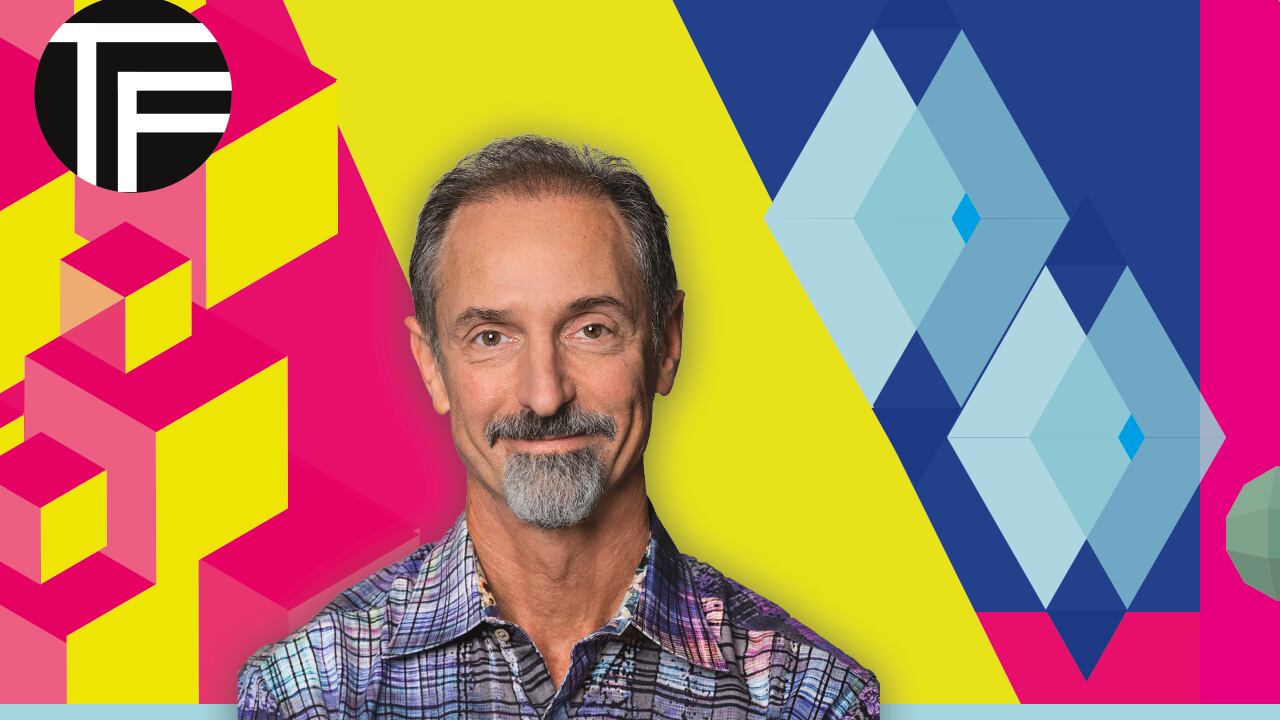Last month, the U.S. Department of Justice sued Alphabet Inc., saying its Google unit abuses monopoly power to fend off rivals in internet search and search advertising.
Khari Johnson, a writer at VentureBeat, says the Google suit has a hidden target: artificial intelligence, or AI. In this case, AI is the algorithm that helps Google figure out what exactly it is you want to find while searching. Those algorithms learn by doing, so the more searches they do, the smarter they get. The strong get stronger.
"The volume, variety and velocity of data accelerates the automated learning of search and search advertising algorithms," the DOJ complaint says.
One man understands how search practice perfects AI: Tom Gruber. He's a pioneer in artificial intelligence and the co-inventor of Siri. Since selling Siri to Apple in 2010, though, Gruber has become one of a small group of technologists who have grown wary of the AI they helped create. He plans to talk about the danger—and promise—of artificial intelligence at WW's virtual TechfestNW on Dec. 2-4.
For Gruber, it's all about the scale: YouTube, another Alphabet property, and Facebook have more than 2 billion users each, making them as big as the world's two biggest religions, Christianity and Islam, Gruber says.
"And I would add that even the people who pray to Mecca five times a day, only do it five times a day," Gruber says. "Our millennials check their phones 150 times a day."
All that data makes the tech giants smarter, Gruber says. And he should know.
Siri grew out of a Stanford spinoff called SRI International. Gruber consulted at SRI in 2007, and, soon after, he and two others, Dag Kittlaus and Adam Cheyer, spun off a newer digital assistant technology that went beyond SRI's work for the Defense Advanced Research Projects Agency. They named the new company Siri, which means "beautiful woman who leads you to victory."
Siri is actually a collection of powerful neural networks: mathematical formulas running on computers that analyze huge amounts of data and learn the patterns within them. Turn a neural net loose on a million samples of spoken language, and it will start to recognize words and their meaning. No longer do programmers have to tell computers what to do, logic step by logic step.
Steve Jobs persuaded Gruber and his partners to sell to Apple in 2010 for some $200 million, according to Wired magazine. Gruber retired from Apple in 2018 and founded Humanistic AI, a firm that helps companies use machine intelligence to collaborate with humans, not replace—or terrorize—them.
Unlike some AI doomsayers, including Tesla inventor Elon Musk and podcasting neuroscientist Sam Harris, Gruber thinks AI can be tamed. Right now, it's a science experiment gone wrong. Frankenstein never meant for his monster to become a killer, and Zuckerberg, he says, never intended Facebook to set us at each other's throats, over politics or anything else.
"My argument is that this is an unintended consequence," Gruber says. "We'll give them a pass on being evil geniuses. Maybe some of them are. But let's assume good intentions."
When it comes to Zuckerberg, assuming good intentions is controversial. In July, Facebook agreed to pay a record $5 billion fine to settle charges by the Federal Trade Commission that it abused users' personal information.
So call Gruber an optimist. He thinks the same algorithms that prey on our bad habits can be used to encourage good ones.
Tech companies make excuses for why they can't police their networks, and most involve money. So far, humans are better at sorting lies from truth, and hate from news. That means you have to hire a lot of humans, which is anathema to the tech monopolies. Gruber says they need to suck it up.
"It's like when the auto industry said, 'Air bags are going to put us out of business, so don't impose this onerous thing on us,'" Gruber says. "It's all bullshit."
And there's more. Why not run all these vast experiments on human behavior to improve human life, instead of wrecking it? Why not use AI to change the habits that lead to type 2 diabetes, heart disease, hypertension and suicide?
"We have weak theories about what makes people tick and what to do to help them do better things," Gruber says. "But AI has shown that if you want to get 2 billion people addicted to something that's not good for them, you can do it."
AI doesn't know if it's operating for good or evil, Gruber says. Someday it may, but for now, it's up to humans to direct it.
So far, we've been crappy shepherds.
Editor's note: A slightly different version of this story appeared in WW in the spring, before TechfestNW was canceled due to COVID19 and rescheduled for this December. The event will be held virtually Dec. 2-4. Tickets are available at techfestnw.com.

